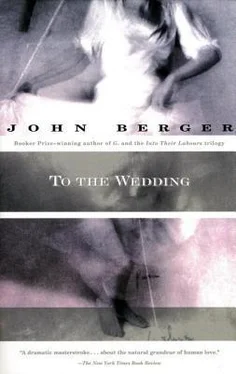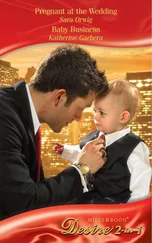The traffic is congested. He moves from lane to lane and rides between the lanes. All the time he’s reading. He reads the signs concerning what another driver is going to do during the next five seconds. He watches how drivers hold their heads, how their arm rests on an open window, how their fingers tap on the bodywork. Then he accelerates or brakes, stays behind or pulls away. He’s been a signalman all his life.
Papa explained the scientific principle to me. Everything’s a question of how you lean. If anything on wheels wants to corner or change direction, a centrifugal force comes into play, he says. This force tries to pull us out of the bend back into the straight, according to a law called the Law of Inertia which always wants energy to save itself. In a cornering situation it’s the straight which demands least energy and so our fight starts. By tipping our weight over into the bend, we shift the bike’s centre of gravity and this counteracts the centrifugal force and the Law of Inertia! Birds do the same thing in the air. Except that birds, Papa says, are not in the air to make journeys — it’s where they live!
The traffic has come to a standstill. The signalman pursues his way between the stationary vehicles, searching for wherever there is a passage wide enough, sometimes to the left along the centre of the road, sometimes to the right near the curb. He manoeuvres, guides the bike. A pall of mist and fumes hangs over the city, masking the sunlight. His motor has overheated because he’s going slowly and the electrical cooling system switches itself on. When he reaches the head of the column he observes what has brought the traffic to a halt. A herd of white heifers is being driven by a man, a boy and a dog along the street. The cattle follow one another like a line of disarmed soldiers who have surrendered. Then a tram appears from the opposite direction, ringing its bell. The driver of a Vision A Mercedes swears to God, and says it’s a scandal that the abattoir hasn’t been moved farther out of Torino. Jean undoes the zip of his jacket.

Gino has given me a ring which is gold-coloured and has the form of a turtle. Every day I decide which way to wear it. I can wear it with the turtle coming home, swimming towards me, his head pointing to my wrist, or I can wear it the other way around, with the turtle swimming out to meet the world. Its metal weighs less than gold, and has more white in its yellow. The ring, according to Gino, came from Africa; he found it in Parma. Today I’m going to swim out with the turtle to meet the world.

There’s a shop in Asklipiou Street where I get my hair cut. Outside is written:  . Which means barbers. Then there’s a slogan:
. Which means barbers. Then there’s a slogan:  . “No Sooner Said Than Done.” Two men and two chairs, that’s all. No photos, no magazines, no lights. They don’t even use mirrors. Instead, there’s trust. The door opens on to the dusty street where the lorries go by. No other barber in Athens can match the scissor speed of these two. The blades snip all the while, whether there is hair between them or not. Never stop. All the time one of them has a pair of scissors up in the air chattering. They don’t move round the chairs. They stay in the same place and swivel the customer. When they pick up a razor, they hold the head absolutely still with the pressure of a single finger. Sitting there, in my favourite barbers, having my hair cut short, listening to the scissors chattering and the lorries passing, I hear a man’s laughter.
. “No Sooner Said Than Done.” Two men and two chairs, that’s all. No photos, no magazines, no lights. They don’t even use mirrors. Instead, there’s trust. The door opens on to the dusty street where the lorries go by. No other barber in Athens can match the scissor speed of these two. The blades snip all the while, whether there is hair between them or not. Never stop. All the time one of them has a pair of scissors up in the air chattering. They don’t move round the chairs. They stay in the same place and swivel the customer. When they pick up a razor, they hold the head absolutely still with the pressure of a single finger. Sitting there, in my favourite barbers, having my hair cut short, listening to the scissors chattering and the lorries passing, I hear a man’s laughter.
The laugh belongs to a body, not a joke. An old man’s laugh. A laugh like a cape thrown over the shoulders of the words being spoken. The old man asks: You’re looking at the photo up there? It’s my son, Gino. He’s in his scialuppa as you can see. You guessed he was my son? A chip off the old block, as they said before chain saws! He’s straighter, straighter than I am. You’re right, slimmer too. He’s straighter because he’s had an easier life, and I pray to God it’ll stay like that. Difficulties twist a man, make knots in him. My son has his secrets, of course, I’m not allowed to see his minas, but he doesn’t have any serious worries, heavy ones. So you’re looking for an anchor? As large as that! May I ask you what you want it for? The discotheque is called the Golden Anchor? (Laughter) I have several but it’s quite a walk. You can always paint one in gold. They’re on the far side of the boilers, to the left of the tyres. Andiamo . As I was saying, I thought he would study more, my son Gino, and he didn’t. You don’t want any urinals? When he was seven years old he used to go fishing alone. When he was eight he could manage a scialuppa by himself — no one else in the boat. Now he goes to Ficardo and fishes on the Po every Tuesday and Thursday. No, at weekends he can’t, he has his markets: Saturday Ferrara, Sunday Modena, Wednesday Parma. Bathtubs don’t interest you? He’s methodical, and maybe this comes from me too. Scrap is method, you know, nothing else. Method and enough land and being able to recognise what comes from what. Everything has to be recognised and put with its family. Gino could have gone into electronics but there’s the problem, the boy can’t work inside. Four walls are a prison to him. When he comes into my office — the cabin where you saw the photo of him in his scialuppa — he can’t stay there for more than three minutes. He’s a boy who’s always listening to the bells of the next village, as the saying went before there were autostrade . So he chose to have his baraccone and every week he does his round of the markets. He’s a good salesman. He could sell confetti at the gate of a cemetery! (Laughter) Yes, he’s in the rag trade. Clothes. Here are the anchors. The largest there came from a lightship. How much? You’re paying in liquid? Then forty-two million. Too much, you say? You can’t tell a bargain when it’s offered you. Ask around, they’ll all tell you the same — Federico’s not interested in selling — he gives things away. Forty-two million.

In Torino near the Ponte Vittorio Emanuele, a dog is standing beside a fisherman on the quayside. Jean Ferrero is looking at them from the road above. His bike is by the curb. He has put his gauntlets and helmet on the stone parapet over which he’s leaning. There is no sun, but the atmosphere is close and the colour of the stone of the parapet — the colour of quince jelly after the jar has been opened for a long while — absorbs the heat.
Careful, says a woman’s voice, you don’t want it to fall in — and she touches the helmet — or do you?
She speaks an Italian which is so melodious and so grave that her spoken words, however ordinary their sense, sound as if they came from the Bible.
“Therefore the Lord God sent him forth from the garden of Eden, to till the ground from whence he was taken.”
The hand on the crash helmet matches the voice. Such delicate hands often go with silken hair, an epidermic sensitivity which amounts to a wound, and a will of iron.
You’d never get it out of the river, she says, it’s too dirty, too foul.
She proceeds to rock the helmet on the parapet with her angel’s hand.
Читать дальше



 . Which means barbers. Then there’s a slogan:
. Which means barbers. Then there’s a slogan:  . “No Sooner Said Than Done.” Two men and two chairs, that’s all. No photos, no magazines, no lights. They don’t even use mirrors. Instead, there’s trust. The door opens on to the dusty street where the lorries go by. No other barber in Athens can match the scissor speed of these two. The blades snip all the while, whether there is hair between them or not. Never stop. All the time one of them has a pair of scissors up in the air chattering. They don’t move round the chairs. They stay in the same place and swivel the customer. When they pick up a razor, they hold the head absolutely still with the pressure of a single finger. Sitting there, in my favourite barbers, having my hair cut short, listening to the scissors chattering and the lorries passing, I hear a man’s laughter.
. “No Sooner Said Than Done.” Two men and two chairs, that’s all. No photos, no magazines, no lights. They don’t even use mirrors. Instead, there’s trust. The door opens on to the dusty street where the lorries go by. No other barber in Athens can match the scissor speed of these two. The blades snip all the while, whether there is hair between them or not. Never stop. All the time one of them has a pair of scissors up in the air chattering. They don’t move round the chairs. They stay in the same place and swivel the customer. When they pick up a razor, they hold the head absolutely still with the pressure of a single finger. Sitting there, in my favourite barbers, having my hair cut short, listening to the scissors chattering and the lorries passing, I hear a man’s laughter.











